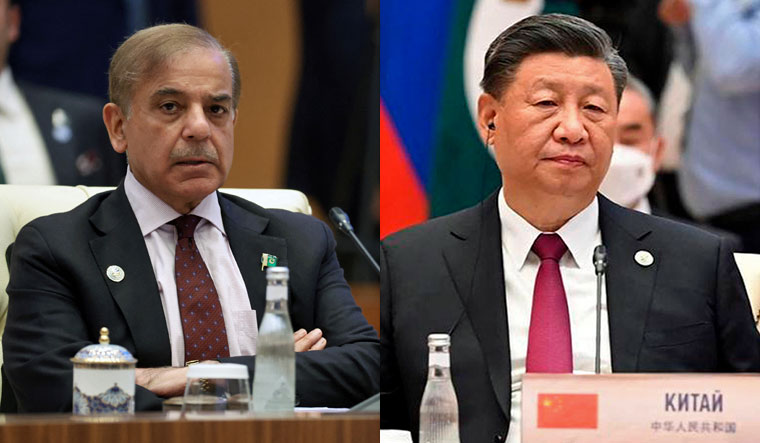NEW DELHI: The Pakistan government in Islamabad will have to take the difficult decision to either slide more into economic depression or accept that the China-Pakistan Economic Corridor (CPEC), which is 10 years into its existence, has failed and the time has come to look beyond it.
Sources said that one of the main reasons behind the stalled talks between International Monetary Fund (IMF) and the Pakistan government is the role that the CPEC has played in damaging Pakistan’s economy, which has been aggravated further due to virtually no returns from the massive investment that has been put in the project and has led to a “circular debt” for Pakistan.
The IMF, sources said, has stated that unless Pakistan renegotiates the CPEC clauses with China, it will have difficulty bailing out Pakistan once again. The final decision of the IMF is expected in a few days. An IMF team had visited Islamabad between 31 January and 9 February to hold discussions under the 9th review of the Extended Fund Facility arrangement under which Pakistan will get the IMF aid. Pakistan is seeking a bailout of $1.1 billion from the $6.5 billion package that was agreed upon in July 2019.
On 3 July 2019, the Executive Board of the International Monetary Fund (IMF) had approved a 39-month extended arrangement under the Extended Fund Facility (EFF) for Pakistan for an amount of US$6 billion or 210% of its quota to support the authorities’ economic reform program.
Pakistan is desperately seeking the bailout which, if IMF agrees to it, will have to be disbursed maximum by June end when the fiscal year ends. Among other things, the IMF has asked Pakistan officials to take its “support” and approval for preparing the upcoming budget, which is likely to be tabled next month.
Saudi Arabia and the United Arab Emirates have announced a support of $3 billion, but the funds are yet to be released. No other country has stepped forward to help Islamabad.
As per the Pakistan Economic Survey (2020-2021), the total outstanding loan Pakistan had to China was $10,777 million. During the same period it paid $422 million as principal repayment, while $451 million was paid as interest payment.
IMF officials, according to sources, have reasons to believe that a major portion of what it has provided so far under this 2019 rescue plan, has been used in servicing the debt payment that Islamabad owes to Beijing under the CPEC agreements.
As per publicly available data, most of the resources required to build CPEC projects, which are a part of the ambitious Belt and Road Initiative (BRI), are being imported from China, the payment for which is going from the IMF assistance which is leading to an ever increasing gap in budget deficit.
According to officials, China and related entities hold more than 30% of Pakistan’s total external debt, the majority of which is related to CPEC. While the BRI was launched in 2013, the CPEC was inaugurated on 20 April 2015 with an idea, which among others, promised to turn Gwadar port city into the new Dubai. But these promises have not gone beyond press releases.
Sources who have been studying the Chinese impact on Pakistan’s economy say that rather than help the Pakistani economy, the CPEC has turned into a burden for the fifth most populous country in the world.
“It is a China backed project, but it’s Pakistani money that is going into it to make it workable.
The Pakistan government is spending money to house, protect the Chinese citizens, it has been tasked to put their best men on their job to protect the Chinese convoy that goes to CPEC projects. China has made it clear that its companies will not join hands with local Pakistani companies, they are bringing all their resources, including much of labour and material from China, without buying anything from Pakistan. On a micro level, it is leading to the shutdown of local trades and small businesses. China is taking money from Pakistan to establish a project, which has so far, almost 10 years into its existence, has refused to show any result.
The Pakistani politicians and economists now need to ask this question as to how long Pakistan will fund China,” said an official source, who is aware of the deliberations taking place between the IMF and Pakistani officials.
IMF puts pressure on Pak torenegotiate CPEC clauses with China
- Advertisement -

